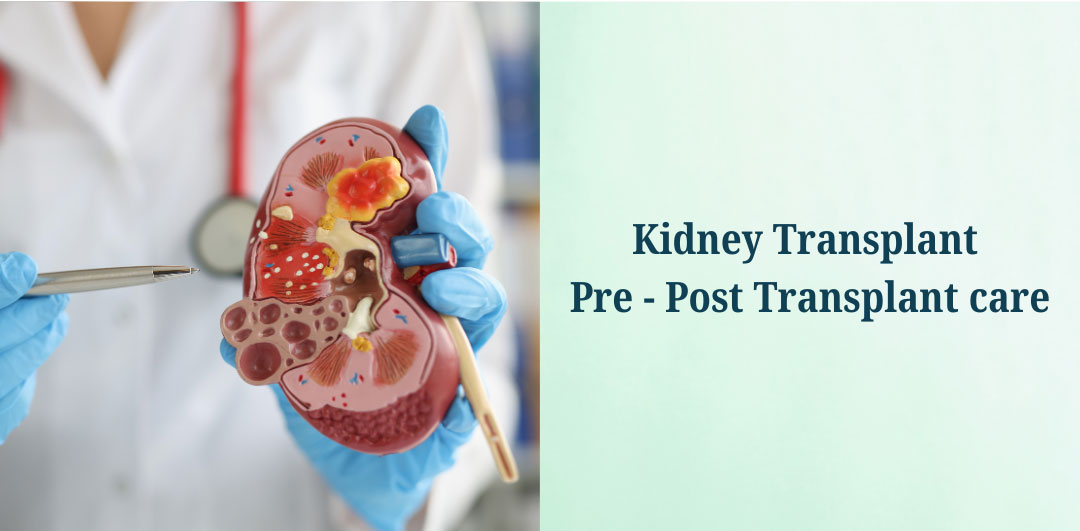Kidney Transplant and Pre - Post Transplant Care

Experience of over 700 successful renal transplants, including complex multi-vessel cases. Complete pre-operative assessment, transplant surgery, and long-term post-transplant management with close follow-up and immunosuppressive care.
Kidney transplantation is a life-changing procedure for individuals with end-stage renal disease, offering a chance to restore normal kidney function and improve quality of life. The process involves surgically replacing a failed kidney with a healthy one from a living or deceased donor. However, the success of a kidney transplant depends not only on the surgery itself but also on comprehensive pre- and post-transplant care.
Pre-Transplant Preparation
The journey to a kidney transplant begins with a thorough evaluation to determine eligibility. Candidates undergo medical tests, including blood and tissue typing, to ensure compatibility with potential donors. Psychological assessments and consultations with social workers help address emotional and logistical challenges. Patients must maintain optimal health by managing conditions like diabetes or hypertension, adhering to a balanced diet, and avoiding smoking or excessive alcohol consumption. For those on dialysis, consistent treatment is critical to stabilize their condition before surgery.
Finding a suitable donor is a key step. Living donors, often family members or close friends, provide the best outcomes due to shorter wait times and better match potential. Deceased donor kidneys, while more common, may involve longer waiting periods, sometimes years, depending on availability and compatibility. During this time, patients work closely with transplant coordinators to stay informed and prepared.
The Transplant Procedure
The transplant surgery typically lasts three to four hours and is performed under general anesthesia. Surgeons place the new kidney in the lower abdomen, connecting its blood vessels and ureter to the recipient’s body. The failed kidneys are usually left in place unless they pose specific risks. Advances in surgical techniques and immunosuppressive medications have significantly improved success rates, with over 90% of transplanted kidneys functioning well one year post-surgery.
Post-Transplant Care
Post-transplant care is critical to ensure the longevity of the new kidney and the patient’s overall health. Immediately after surgery, patients are monitored in the hospital for about a week to manage pain, prevent infections, and ensure the kidney functions properly. Immunosuppressive medications are prescribed to prevent rejection, requiring lifelong adherence to precise dosages. These drugs, while essential, increase infection risk, so patients must avoid crowded places and maintain strict hygiene.
Regular follow-up appointments are necessary to monitor kidney function through blood tests and imaging. Patients are encouraged to adopt a heart-healthy diet low in sodium and processed foods, stay hydrated, and engage in light physical activity as approved by their care team. Emotional support, including counseling or support groups, can help patients cope with the stress of lifestyle changes and the fear of rejection.
Long-Term Outlook
With proper care, a transplanted kidney can last 15–20 years or longer. However, patients must remain vigilant about their health, promptly reporting symptoms like fever, swelling, or changes in urination to their healthcare provider. Advances in transplant medicine continue to improve outcomes, offering hope to thousands annually.
Kidney transplantation is a complex but rewarding process. Through diligent pre-transplant preparation and committed post-transplant care, patients can embrace a renewed lease on life, free from the constraints of dialysis and kidney failure.
